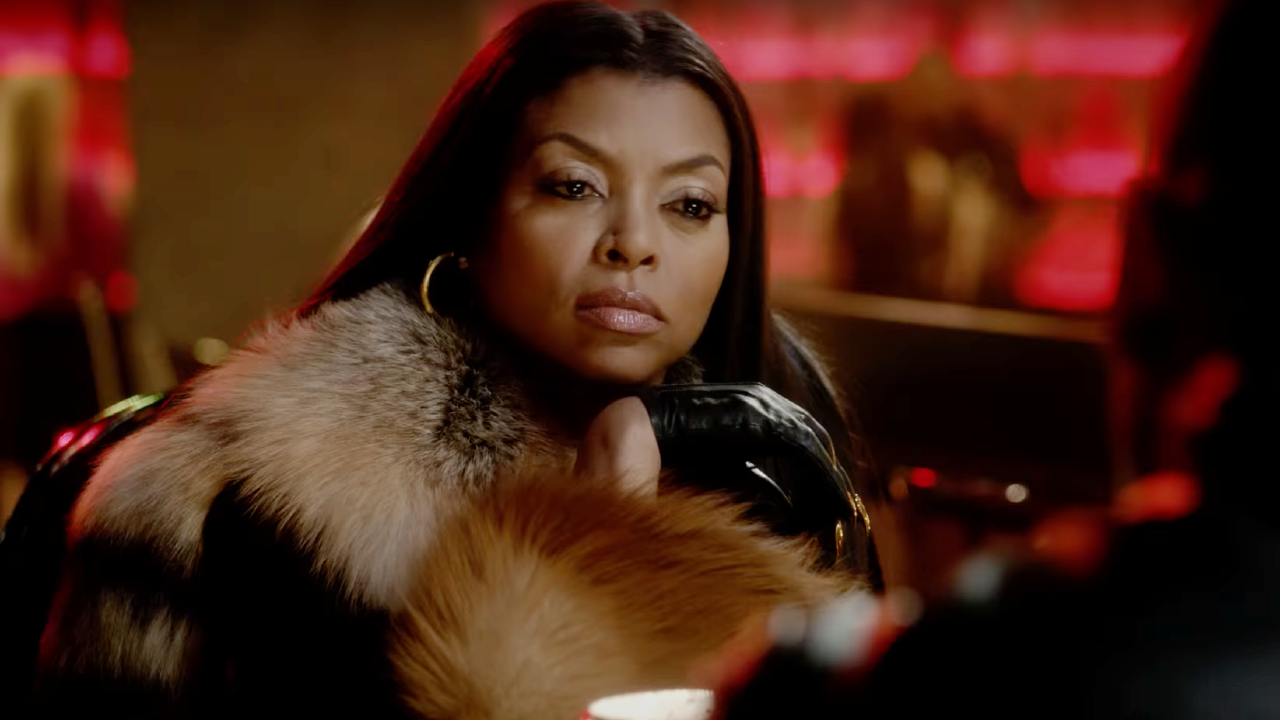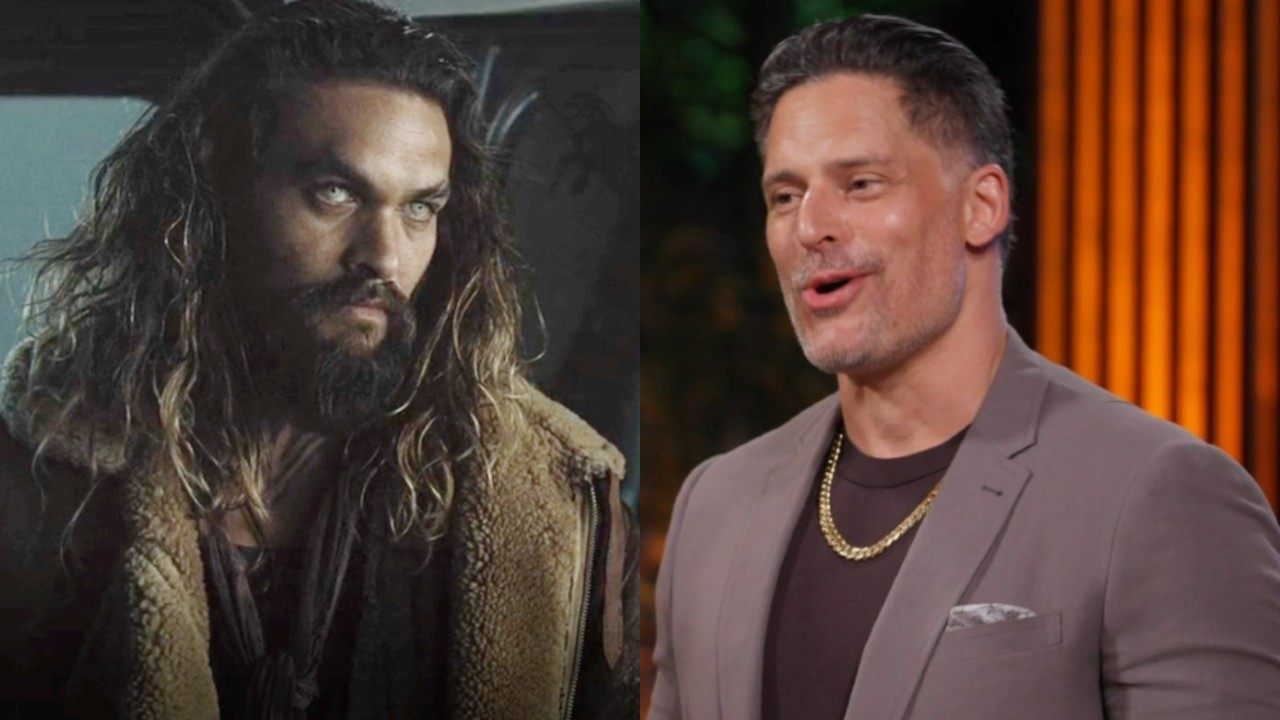Exclusive Interview: Taraji P. Henson Of I Can Do Bad All By Myself

Your Daily Blend of Entertainment News
You are now subscribed
Your newsletter sign-up was successful
Taraji P. Henson become a somewhat hard to pronounce household name among cinephiles last fall, when her performance as the adoptive mother of a strange child in The Curious Case of Benjamin Button earned her an Oscar nomination. But despite all the accolades and increased job offers that came with the role, the first call she received after the Oscars came from an old friend-- Tyler Perry.
In The Family That Preys Perry and Henson played husband and wife as part of an ensemble cast, but in the duo's new film, I Can Do Bad All By Myself, it's much more of an individual thing for Henson. She stars in the film as April, a troubled lounge singer leading an alcohol-addled, selfish life when her niece and nephews are forced to come live with her. Perry is also part of the cast in his signature role of Madea, but it's Henson who dominates every scene as April transforms from a prickly loner to a full-fledged member of her community and her family.
I talked to Henson about the spiritual aspects of the film and her connection to the troubled character, as well as the sillier aspects of working with Perry while in costume as Madea, and working with child actors who are more clever than they let on. Check out our entire interview below. I Can Do Bad All By Myself opens tomorrow, September 11.
Everyone seems to love working with Tyler Perry so much. What about him makes him so great to work with?
Well he's writing material that people are interested in doing. He's writing material that we don't get to do as African-Americans or minorities. No one is calling me offering me my own film. The day after the Oscars, he was the first call I got. I've been doing this for 10 years, this is my first leading role. It's an opportunity to show the industry that I can carry a film. Thank you Tyler Perry!
I'd imagine that after the Oscars you got a lot of offers.
It was still all supporting. Great stuff, but I wonder how many of these will come now. Hopefully more.
Your Daily Blend of Entertainment News
You've said that you really hated the character at first. How did you connect to April?
When she started to soften up in the end. When she allowed herself to be vulnerable was when I really started to connect. But I don't judge my characters, that's not my place. My job is to bring the character's truth to light, and that's what I do. It's difficult to like her in the beginning, but she's human, just like we all are. We're all flawed. My job was to find out why she was the way she was.
Do you know people like April?
Yeah. I can't really say there's one particular person. A lot of times characters are combinations of people I come across in life. I people-watch a lot.
You've sung in films before, but you're in this one with Gladys Knight and Mary J. Blige. How was singing your big number at the beginning, and was it intimidating to sing around them?
Well yeah, but they were just as intimidated about acting. The balance was we were there for each other and supported each other. That's what made it so beautiful. I always was a huge fan of both of their work, and I have a lot of their recordings. But getting to know each of the women individually, I understood why I was drawn to their music. Because they tell stories, they speak of truths, and they sing about pain and love, they give a little insight to some of their pain, and how they love. And it's raw and it's real and it's soul.
Is that what you tried to go for in that opening song?
Absolutely. You get up on that stage and it's like a drug. It's instant gratification with the audience right there. Who doesn't want to be loved, who doesn't want to be applauded. You just get up there and let yourself go.
So how was working with Tyler in costume as Madea for the first time?
Very difficult to keep a straight face. Last night was the first time I had seen the film, and I saw a moment when I was about to laugh. But he cut away before I broke.
And is it hard when he's directing you in costume?
Yeah, because he has these droopy saggy boobs and this big butt, and hair and makeup and the full regalia, and then he goes "cut" in that voice.
Was there one message of this film that really appealed to you in particular?
Basically what I take away from it is if you're not loving, you're not living. Love is the greatest gift that God has given us. It's free. Humans have a light side and a dark side, and it's up to us to choose which way we're going to live our lives. Even if you start out on the dark side, it doesn't mean you have to continue your journey that way. You always have time to turn it around.
How was it working with the two child actors [Kwesi Baokye nad Frederick Siglar] as well as Hope [Oladie Wilson, who plays a 16-year-old but is actually 22].
They have very bright futures ahead of them. They were the consummate professionals. They were so incredible and uninhibited and willing to explore and go that extra mile. They're like sponges, because they're kids. They want to please, they want to do good. We would always forget that Hope is a grown woman. We'd say, let's go get a drink, and we'd always forget about Hope, because she looks like she's 14.
Was it hard to be mean to the younger kids in those early scenes?
Very hard, because I'm a nurturer by nature. I love children. Sometimes I wouldn't be hard enough, and Tyler would come over and whisper some of the most horrible things for me to say to these kids to get the reaction that he needed. And he'd yell cut, and I'd be like, oh my God, I'm so sorry, I didn't mean it. And they'd be like, it's OK, we know you were just acting Miss Henson.
Staff Writer at CinemaBlend

